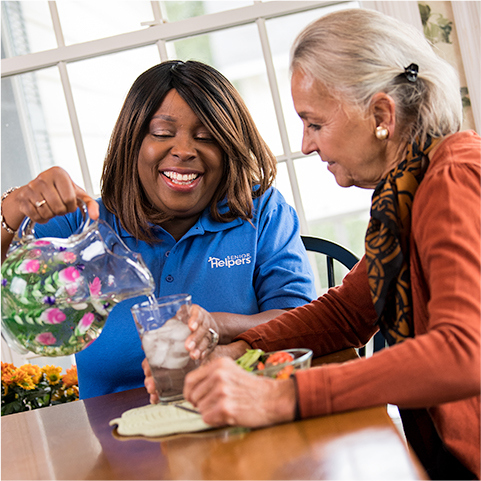How to Build Trust with Your Aging Adult
Caregiving is no walk in the park. The lack of trust will make it even more difficult. Make trust a priority in that relationship now so as to save yourself a great deal of energy and time. Trust makes all the difference when you are faced with some challenging situations.
No doubt, trust takes time. This is where most caregivers fall short. They are often busy with their caregiving roles and duties for the elderly that they forget to nuture the relationship with them. If your aging adult trusts you, they will be less anxious and resistant while you care for them. Here are some great tips on how to lay a solid foundation of trust between you, the caregiver and your aging adult.
Building Trust May Take Creativity
An aging adult may prove difficult and question your motives especially when discussing future living arrangements or care. The best option is to have built trust in your relationship with your aging adult when they were feeling well. Once they trust you, be rest assured they won’t find it difficult to rely on you. They’ll know you are on their team and have their best interests at heart. They would also feel more secure and confident as they slip into old age. Then, you can discuss more about what’s best for their wellbeing.
You can start by making short calls to your parents or grandparents every day. You may also set apart some money for their upkeep regularly. This means you show them you love them wholeheartedly. Rome wasn’t built in a day and neither is trust. Remember, one day you will be the one in the need of help from your future children or grandchildren. Start by setting a good example for them now.
Find Out What Your Loved Ones Want
Everyone wants to feel a bit of control over their life and wellbeing. So unless they are completely out of their minds, you must find out the wants of your aging adult(s). Don’t assume you know exactly what they want. Discuss with them their preferences. Assumption can be quite risky. Even when you are so sure of what they would want or desire, there is no harm in checking with them to rule out surprises.
One health care professional was so sure that her mother would like receiving care at a nursing home. After giving her a piece of advice about discussing it with her aging mother, she reluctantly agreed. She was so shocked the mother found the idea appalling and preferred to receive care at comfort of her home! Don’t assume, discuss! Save yourself the heartache and drama.
Avoid Being a Cheerleader Just Because You Think You Should
Normally, you are tempted to act as a cheerleader for your aging adult. However, that approach may be counterproductive though done good-naturedly. You can tell your aging adult that he or she would recover from a certain illness out of having a positive attitude, however, if you don’t have anything to back the narrative you are pushing, you may find out that you’re losing the trust they have in you.
Keep Goals and Statements Reasonable
Be as realistic as possible when talking about your aging adult’s health or planning his or her future. Your goals and statements must be firmly rooted in reality so that they can be achievable. You can discuss with the physician in charge of your seniors’ health to find out how realistic your goals for their health are. Always revise these goals as their health changes.
Focus on What Your Senior Can Do Still
Highlight what your seniors can still do and focus on those things. Focusing on what they are unable to do for themselves will negatively affect your interactions and strain your relationship with them. Help them to focus on their abilities also and encourage them to do these things for themselves. This would give them some sense of independence.
Show Her You’re Willing to Take Care of Yourself, Too
Another way to increase your loved one’s trust in your ability to take care of him or her is to show you can take good care of yourself as well. This will increase his or her confidence in you and prove you have more to offer. Hire home care providers if you need to and take some respite time for yourself. Get help with tasks when you need to.
It takes two to tango. Building trust around caregiving is not one-sided. It requires time and effort from both the caregiver and the senior receiving care. However, it is a very rewarding process bound to yield good results.
